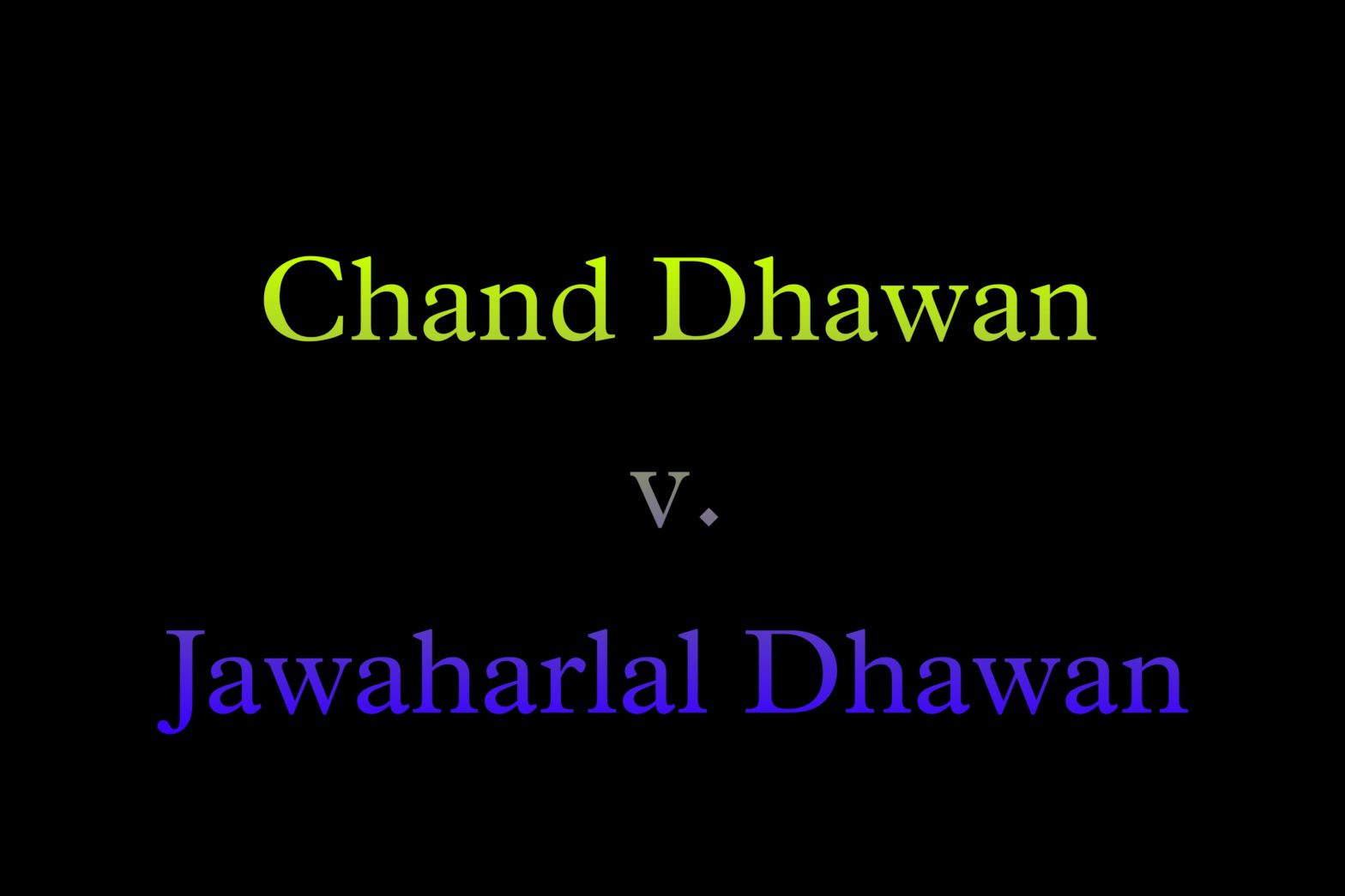Citation: 1993 SCR (3) 954
Case Type: Civil Appeal
Case No: 2653-54 of 1991
Appellants: Smt. Chand Dhawan
Respondents: Jawaharlal Dhawan
Decided On: 11-06-1993
Facts
The case involved a Punjabi couple who had been married since 1972. Three children were born out of wedlock and were living with their father at the time. Two of them were born in the years 1973 and 1976, and the third was born in 1980. In 1985, an Amritsar court granted a divorce on mutual consent under Section 13B of the Hindu Marriage Act, 1955. But the appellant-wife claimed she was not a willing party to the divorce, and the petition was dismissed in 1987. After reaching an agreement, she returned to her matrimonial home, but the subsequent events could only result in a brief ceasefire. Three months later, the husband filed a divorce case in Ghaziabad, alleging adultery on the part of his wife.
The allegations against the appellant-wife were dismissed, and the Court awarded her support of Rs. 1,000 per month. However, the husband refused to pay this amount, and the divorce proceedings were put on hold. On the Husband’s objection, the Allahabad High Court delayed the District Court’s order.
The wife then addressed the Additional District Judge in Amritsar on 22-03-1990, requesting permanent alimony under Section 15 of the Act, as well as maintenance awaiting litigation and litigation fees under Section 24 of the Act.
The petition was granted, and the parties were awarded ₹6,000 in litigation costs and ₹2,000 in monthly maintenance. The husband appealed the order to the Punjab and Haryana High Court in Chandigarh. The husband’s challenge was upheld, and under Section 24 order was canceled. After that, the case was appealed to the Supreme Court.
Issue
Whether the payment of alimony is permissible without the termination of a relationship between the spouses.
Holding

The bench of the Apex Court, which included Punchhi and M.M. Yogeshwar Dayal (J), ruled as follows:
The wife’s request for maintenance under Section 25 of the Hindu Marriage Act to the Additional District Judge in Amritsar was ill-advised.
The Court overturned numerous High Court judgments that held that even though a petition was dismissed, it amounted to a decree and that a petition under Section 25 might be maintained. The Court upheld the position that until the divorce petition is approved, no suit for permanent alimony under Section 25 of the Act is admissible. As a result, the Court regarded the opposing viewpoint as an anomaly.
As a result, the appeal was dismissed without a cost order. While the appeal was pending, the Court ordered the husband to pay monthly maintenance of ₹1,000 by bank draft. When it was claimed that such an order had not been followed, an interlocutory application was brought. As a result, the spouse was served with a show-cause notice by the court.
Rationale
Although a suit or petition being rejected can potentially be regarded as a decree, this is not the case under Section 25 of the Hindu Marriage Act, 1955. Only decrees made under sections 9-13 of the Act are covered by the challenged Section 25.
No permanent alimony relief can be granted if the husband’s divorce petition is dismissed. If a divorce is granted, however, a party may seek assistance under Section 25 of the Act, sub-section (1).
In Swaran Lata v. Sukhvinder Kumar, the Punjab and Haryana High Court held that when the parties’ rights are determined and conclusive in character, regardless of whether any remedy is granted or not, it amounts to a decree, and the wife is entitled to seek alimony under Section 25.
The phrase “passing any decree” in Section 25 of the Act only pertained to granting any type of relief as stated in Sections 9 to 13 of the Act. A decree is a decree of divorce, nullity, restitution of conjugal rights, or judicial separation, as described by Section 25 of the Act; if the petition fails, no decree is issued, and therefore no alimony is paid.
The court’s position was justified by the fact that when a wife’s right as guaranteed under Section 125 of the CrPc and Section 18 of the Hindu Adoption and Maintenance Act, 1956, and when that right is undisputed, the Court can give effect to that right as far as possible under Section 25 of the Act to avoid duplication of proceedings.
Technicalities should not be allowed to prevent the Court from adjudicating matters when necessary, and hence the dismissal of a petition could not be a bar to relief under Section 25 of the Act. Following that, numerous High Courts applied a liberal interpretation of Section 25 in their decisions, holding that even a dismissal of a petition should be considered a decree and that it must allow the remedy to be awarded under Section 25 of the Act for the issuance of permanent alimony.
However, the Court decided in this case that the Matrimonial Court is a Court of Special Jurisdiction that is not authorized to rule on a maintenance claim until an order affecting or disrupting the couple’s marital status is issued. In this case, the Matrimonial Court’s rejection of the claim had no effect on or disruption of the marital status.
